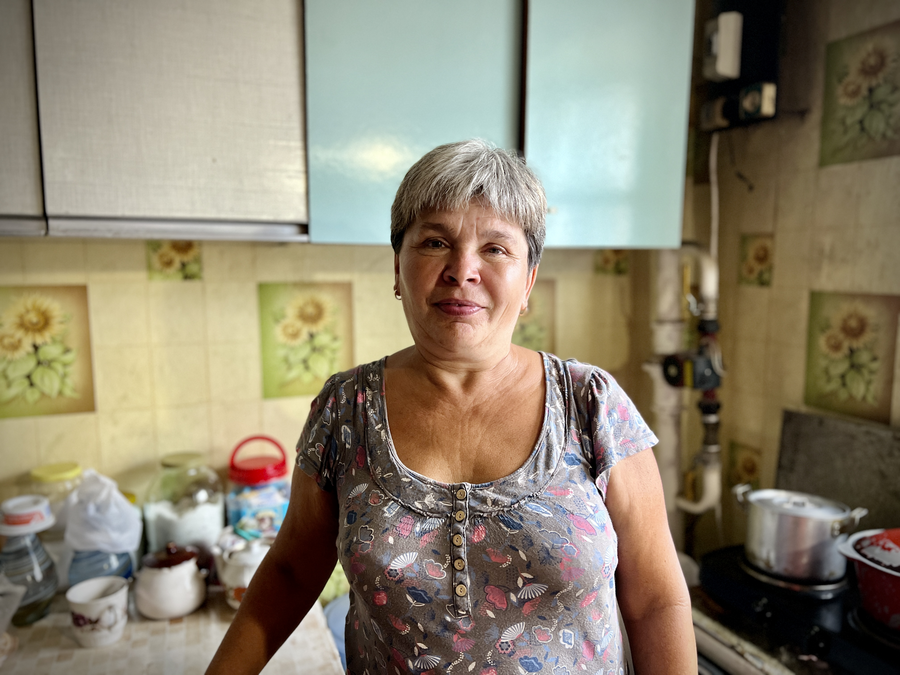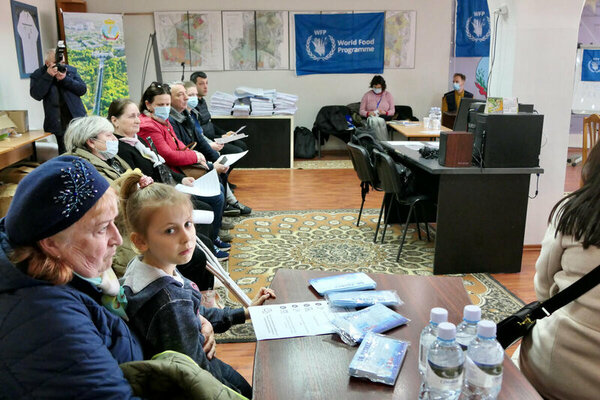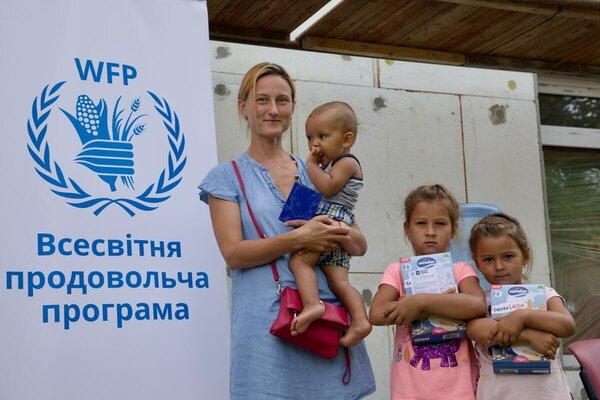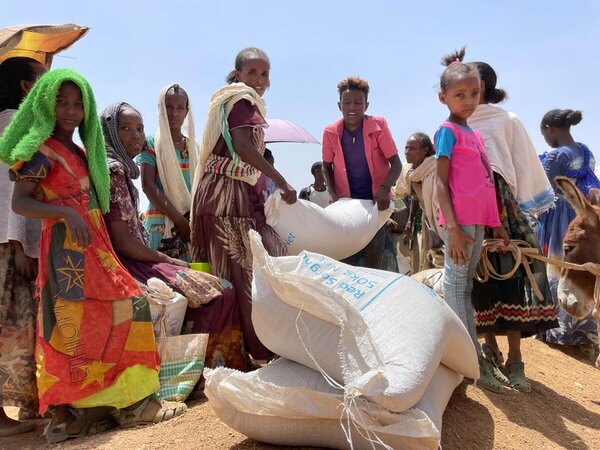Ukraine: Six months of war and humanitarian response amid a global food crisis

Six months of war in Ukraine have claimed thousands of civilian lives and uprooted millions of people. Many families who remain in areas close to frontlines are struggling to access food after commercial supply lines were disrupted. Those who’ve fled their homes have often lost their livelihoods and are struggling to rebuild their lives, having run out of money or found their homes reduced to rubble.
Below are a few ways the World Food Programme (WFP) stands alongside people in Ukraine and the wider world as hunger reaches record highs. (A total of 50 million people in 45 countries are teetering on the edge of famine.)
Cash assistance
WFP is the leading provider of humanitarian cash-based transfers worldwide, with extensive experience in conflict settings.
Our multi-purpose cash programme helps displaced people in Ukraine cover essential needs such as food, healthcare, and accommodation.


Vera, a Moldovan, waits in line at the newly set-up WFP base in Chisinau, with the 7-year-old daughter of her Ukrainian guests. (Photo: WFP/Edward Johnson)
Since the beginning of the war, WFP has disbursed more than US$200 million to internally displaced Ukrainians. In Moldova, 11,000 families hosting Ukrainian refugees also receive cash transfers from WFP to cover additional expenses such as food and utilities.
Food assistance
WFP began serving ready-to-eat nourishing meals and distributing bread within days of the war in Ukraine. As our response adapts, we are providing food kits wherever food is unavailable or hard to access.

The provision of food kits helps counter the impact of inflation and decreased purchasing power for families, freeing up resources to cover other needs.
Food kits cover most of a family’s monthly nutrition needs; they contain canned protein (meat or beans), sunflower oil, pasta, or rice. To date, WFP has distributed more than 64,000 metric tons of food to people in Ukraine.
Supporting grain exports
Before the war in Ukraine, the country produced enough food to feed 400 million people per year. Food export disruptions had immediate implications for countries that rely heavily on grain imports from both Russia and Ukraine – key players in global wheat and maize markets.
WFP has been working with the Government of Ukraine and other partners to advocate for and facilitate the export of grain through Black Sea ports as well as alternative land and river export routes.


Last week (16 August), the first shipment of Ukraine grain for WFP operations since the war left the Black Sea port of Pivdennyi in Odesa – a chartered vessel took 23,000 metric tons of WFP to the drought-hit Horn of Africa region, where catastrophic hunger threatens more than 20 million people.
Allowing the export of Ukrainian grain is critical to stabilize global markets and alleviate hunger, but it also has direct benefits for Ukrainians.
The agricultural sector is an essential component of Ukraine’s economy, representing around 11 percent of its GDP, and a direct source of livelihood for many of the 13 million Ukrainians living in rural areas. Resuming grain exports will help free up silos and give both the resources and confidence Ukrainian farmers need to prepare a new harvest.
Prepositioning food in high-risk areas
As the war in remains highly volatile, with shifting frontlines, WFP is taking part in and coordinating convoys to hard-to-reach areas, supporting the delivery of food kits and other essentials, and conducting food security assessments. In July, WFP reached more than 900,000 people in hard-to-reach or frontline areas directly affected by fighting.

We continue to engage with the parties to the conflict to negotiate humanitarian access via convoys to the hardest-hit locations – particularly in the east and south – guided by humanitarian principles and aiming to reach people on both sides of the contact line.
Reactivating markets by enhancing purchasing power
WFP started distributing value vouchers in Chernihiv and Sumy oblasts. Families receive a US$13 paper voucher per person to spend in a number of WFP-contracted grocery shops.
WFP is currently working to facilitate the transition of approximately 64,000 beneficiaries from food assistance to value vouchers. The voucher system helps retailers return to hard-hit communities, and local economies to recover. This temporary measure will be replaced with cash transfers as the situation permits.
Supporting Ukraine’s economy and food systems
Food systems – the networks that are needed to produce and process food, and ensure it reaches consumers – are not meeting the needs of many around the world. Their flaws are further exacerbated by the conflict in Ukraine and the climate crisis.

WFP continues to prioritize the local procurement of food from Ukraine. We currently buy 80 percent of the food we distribute inside Ukraine, directly supporting Ukrainian farmers and Ukraine’s economy. We also work with local bakeries to deliver bread.
WFP’s overall priority in Ukraine is to work with local authorities, non-governmental organizations, and the private sector to restore access to food, stabilize institutional services and sustain economic activity to reduce vulnerability in the long term.

